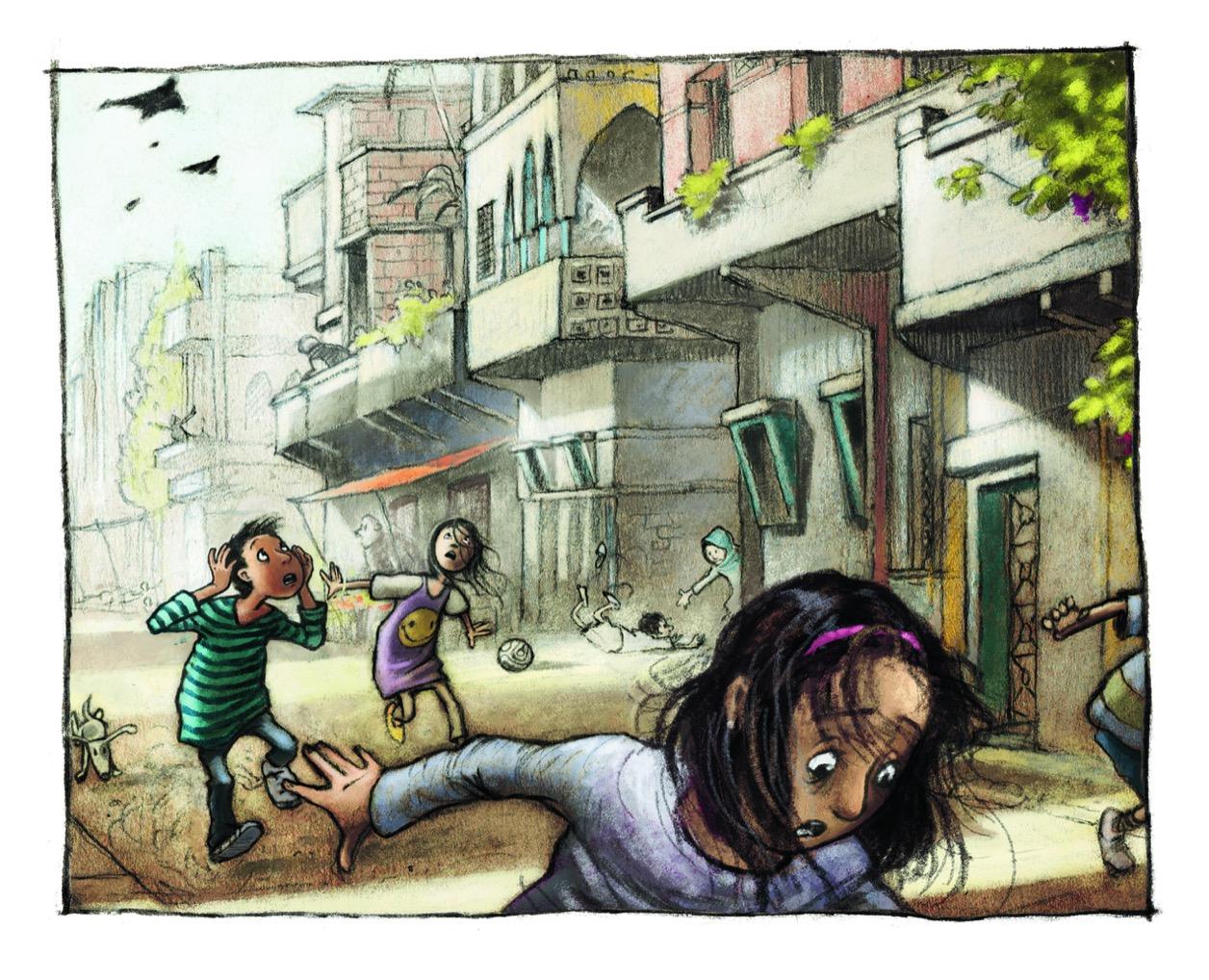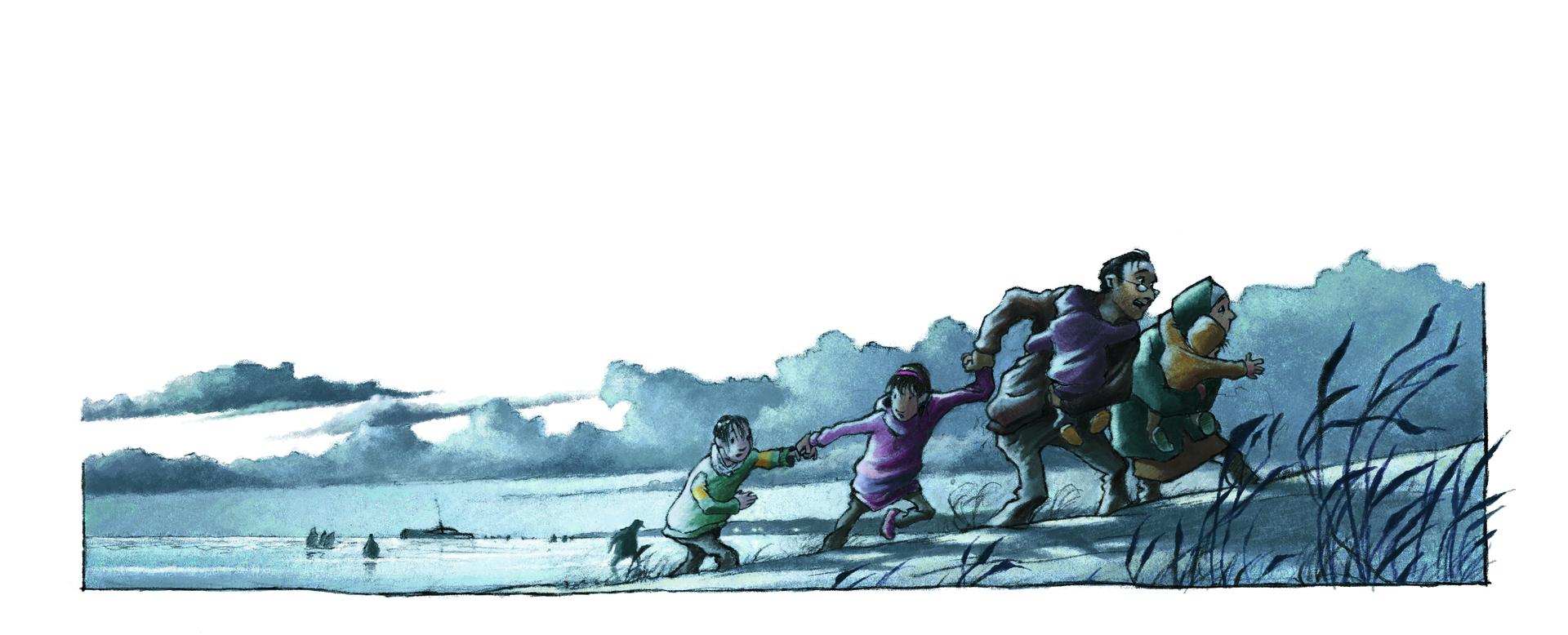Rahaf and her family fleeing Homs, Syria to Germany.
There are now more than 65 million people displaced by conflict in the world, the highest level ever recorded. Half of these refugees are children.
Germany has received more than 1 million refugees, mostly from Syria and Iraq. Despite supporters initially celebrating Chancellor Angela Merkel's actions, many Germans have begun voicing concerns about when this acceptance of migrants will come to an end.
But while the adults in Germany have expressed mixed reactions to the refugees, German author Kirsten Boie wants children at least to realize that a refugee child is just like any other kid in the world.
In her latest children’s book, “Everything Will Be Alright,” she writes the true story of Rahaf and her family, who flee Homs, Syria due to bombings by war planes. The family crosses the Mediterranean Sea on a small boat, ultimately choosing a small town near Hamburg, Germany to start their new lives.
The book is published in German and Arabic and is meant to be read at school to both German-born children and their new immigrant neighbors. (An English translation is available online here.)
“You have hundreds of thousands of people who not only welcome refugees coming to us, but who support them very heavily, who give a lot of their time helping them to learn the language, to go to a doctor, to go to authorities and so on. And on the other hand, you have some people who are completely against refugees,” Boie says. “Children are somewhere in the middle and the information that they get — well, some parents speak about refugees badly, some say something different. So I thought just telling a story of a genuine family would give them a chance to learn what it was like."
Throughout the past year, Boie has been in contact with refugee families. She says that she could have chosen a more “dramatic” story to tell — one that would have included more loss, violence and pain — but she decided to tell a more “ordinary” one. She hopes that will allow German children to relate to refugee children more easily.

As she worked on the book, Boie would meet with Rahaf and her brother Hassan (not their real names) as well as their mother. Instead of talking about the violence and war right away, the two children reminisced about their home and the friends and cousins they left behind. Their mother eventually prompted them in Arabic to speak of the war atrocities they had witnessed, Boie says.
Boie keeps in touch with Rahaf and Hassan — they even go to the movies together — but she doesn't plan on a sequel.
“I'm pretty certain I won't do that. I did everything so that nobody could identify these children. I even changed their names — that is, they changed them themselves. They told me what they wanted to be called in the story,” Boie says.
At readings Boie has done, some young German readers worry about the well-being of Rahaf and Hassan. They have even started to empathize with them.
“Children, I think they're very, very open-minded. When they hear what these kids have gone through, they want to know, 'Can we help them? How can we help them? What can we do to make life easier for them?'” Boie says.
“In this story of these two Syrian kids, the smugglers on the Mediterranean, they steal their luggage. In the luggage there's the girl's doll. And she's very unhappy about losing her doll that way. The children here always start by asking, 'Has she got her doll back?' I think the reason for that is that this is something that they can imagine [happening to] themselves, whereas all the bombs and fighting and nights on the Mediterranean … they can't imagine that happening to themselves.”
Boie, who has written over 60 books for both children and teenagers, believes stories help young people understand what's going on in the world.
“Stories, I think, always make it much easier for children to understand something than theoretical knowledge. I think that's the chance we have,” Boie says.
Every day, reporters and producers at The World are hard at work bringing you human-centered news from across the globe. But we can’t do it without you. We need your support to ensure we can continue this work for another year.
Make a gift today, and you’ll help us unlock a matching gift of $67,000!
